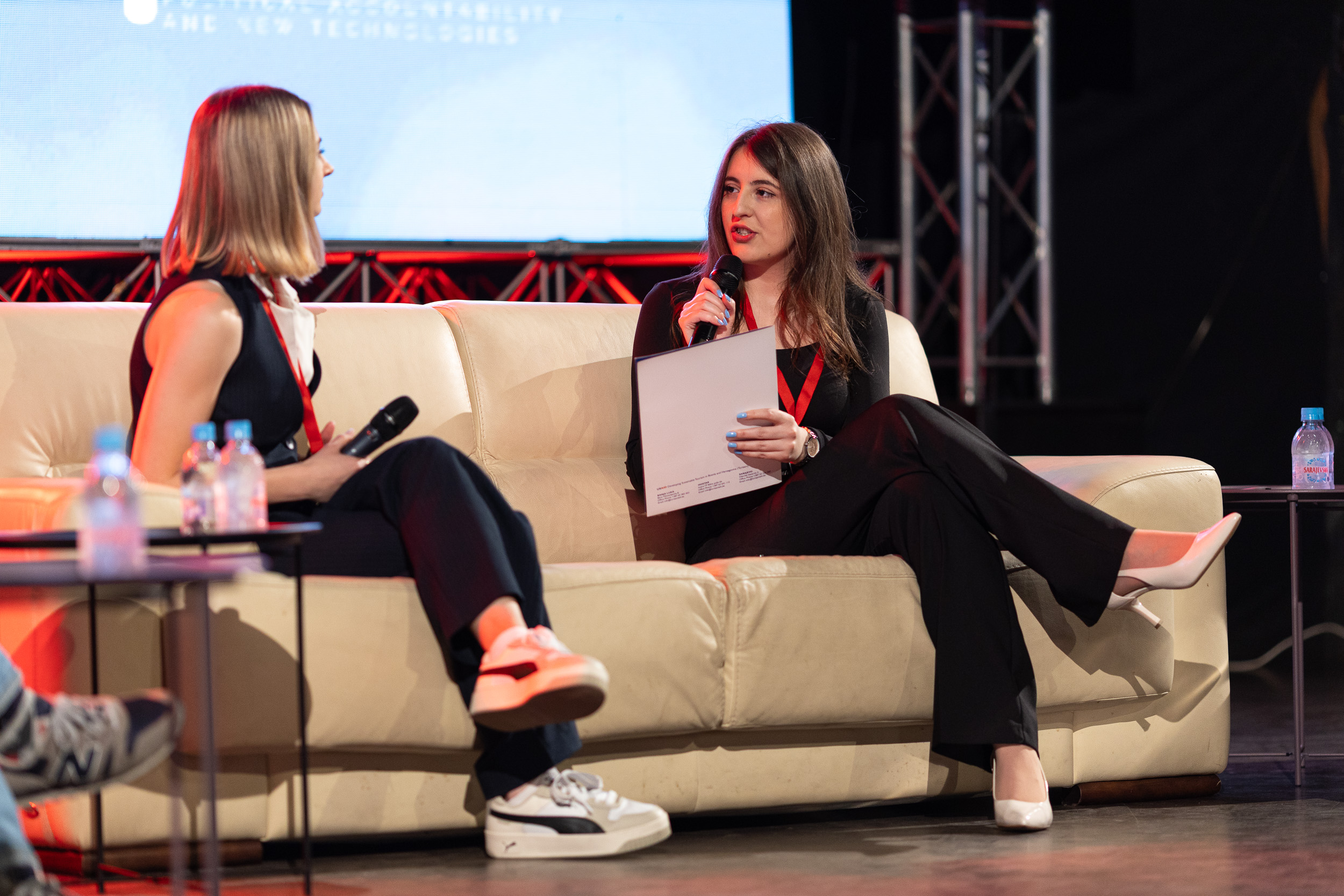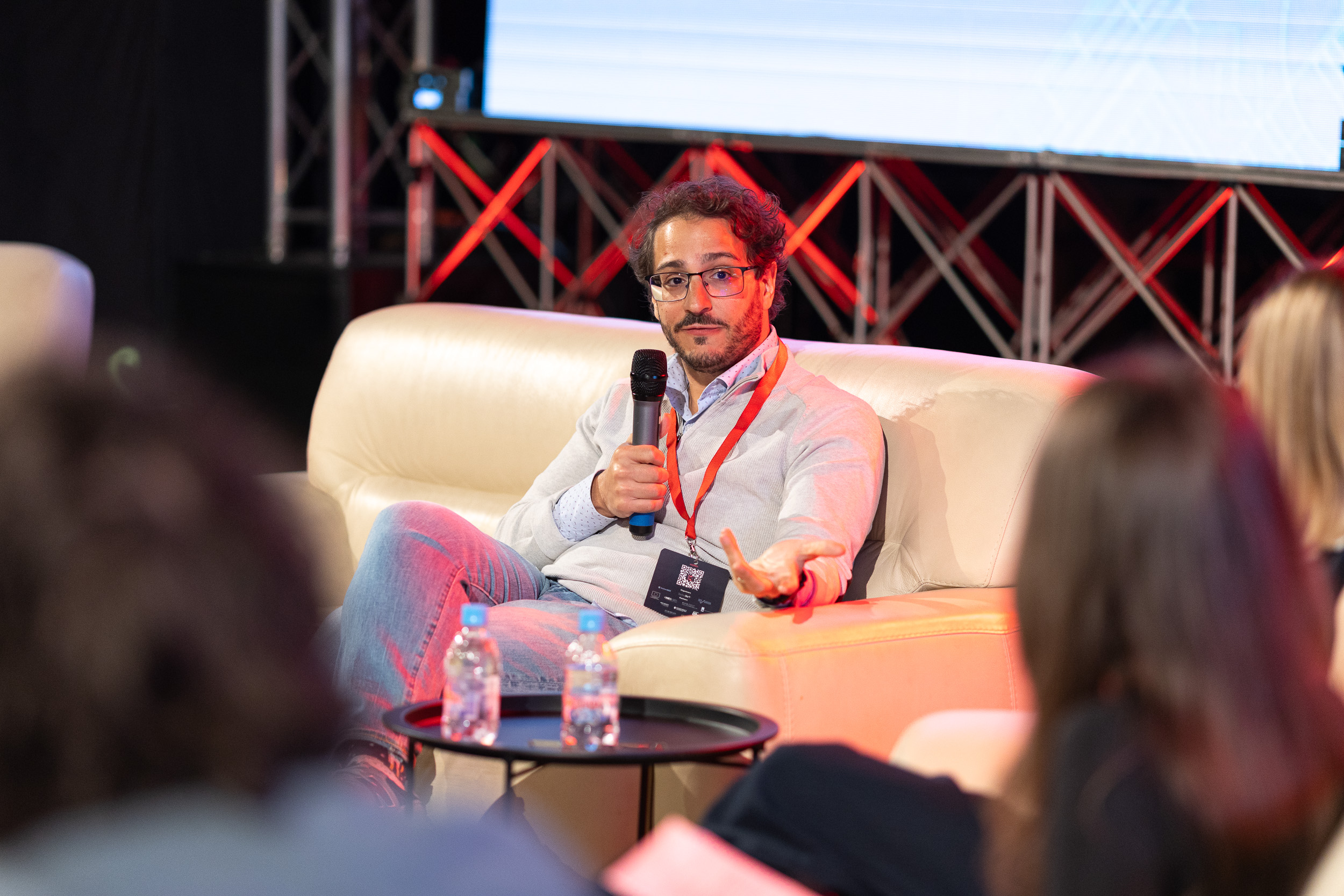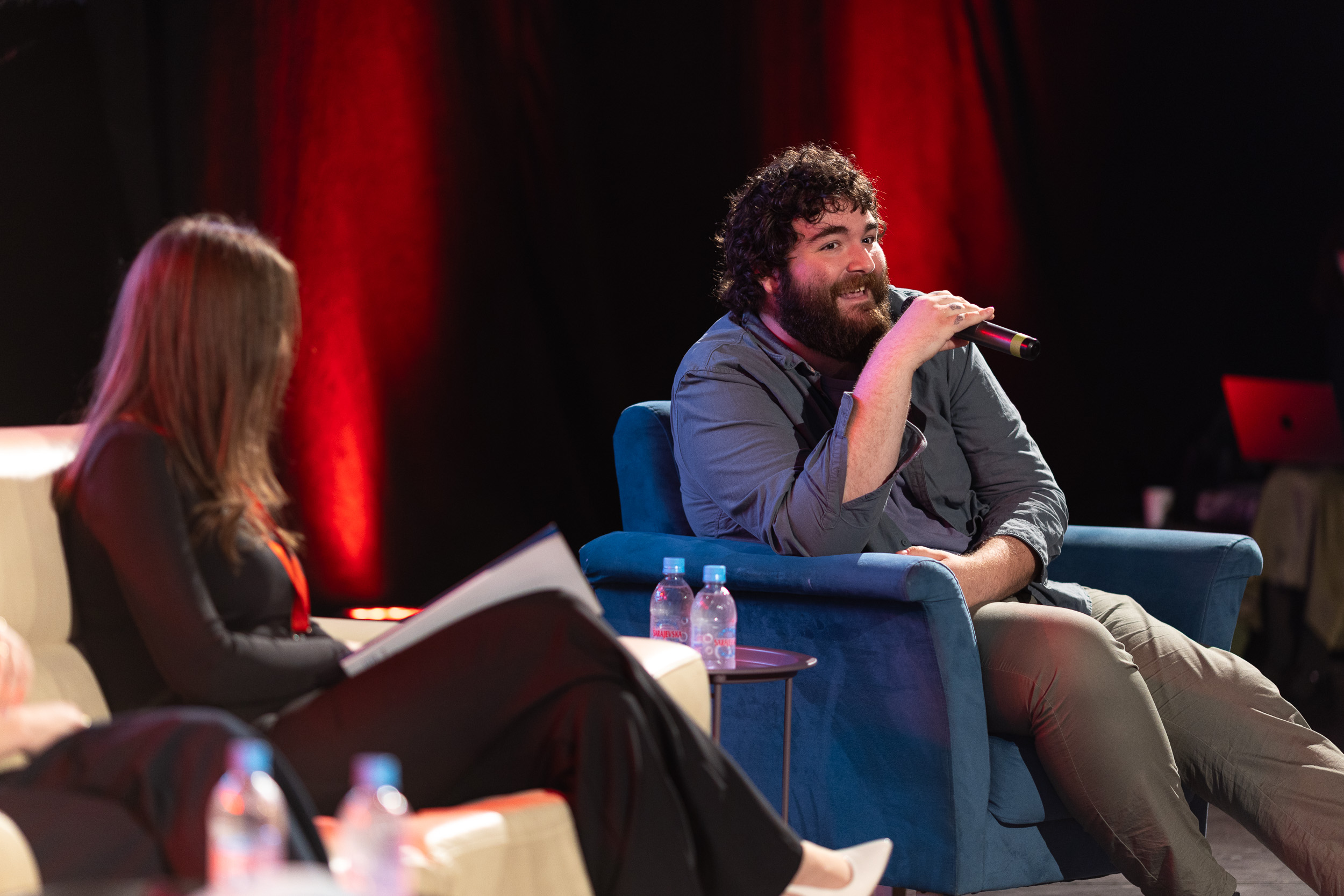Digital Security and Infrastructure for Activists, Media and CSOs in the Western Balkans
In an era of growing digital threats, activists, journalists, and civil society actors in the Western Balkans are striving to protect their work and communities online. This panel addressed the urgent need for secure digital infrastructure and practical strategies for digital resilience.

On the first day of the POINT Conference, the panel titled “Digital Security and Infrastructure for Activists, Media, and CSOs in the Western Balkans” took place at the Dom Mladih amphitheater. The discussion, moderated by Azra Milić from BIRN HUB, brought together key voices from the region and beyond: activist Nikola Ristić; Michael J. Oghia from the Journalism Cloud Alliance; and Andrijana Ristić from the Share Foundation.
The panel explored critical challenges and solutions related to digital infrastructure and cybersecurity for activists, independent media, and civil society organizations. Emphasis was placed on practical tools, policy advocacy, and cross-sector collaboration to ensure safer and more resilient digital environments for those defending democratic values in the Western Balkans.
Opening the panel, moderator Azra Milić stated that civil society organizations are increasingly at risk of surveillance, digital attacks, and disinformation campaigns. She emphasized that two panelists had recently been directly targeted by a smear campaign led by the Serbian tabloid Informer. These attacks included unfounded accusations — a troubling attempt to discredit voices from civil society.
She then asked one of the targeted panelists, Nikola Ristić, what types of surveillance had been used against him.
“I’m afraid we don’t have enough time to go over all the techniques used on me,” he said. “But perhaps the most interesting — and something others can learn from — is the extent of digital surveillance.”
He went on to describe how Serbia’s secret service (BIA) hacked his phone and how he tried to resolve the situation. He also mentioned that both he and his family and friends had been threatened, checked, and monitored on several occasions.
The moderator then turned to Andrijana Ristić from the Share Foundation, an organization dedicated to researching digital surveillance tools and the societal implications of advanced technologies. Given their long-standing mission to protect digital rights, data privacy, and digital security, Milić noted that it was not surprising Andrijana had also been targeted by Informer.

She asked Andrijana how this public targeting had affected her personally and professionally.
“It’s very unfortunate,” Andrijana responded, “but these cases provide us with information we need to better advise other activists and civil society organizations on how to stay secure. It was surprising to see my name in the tabloids — but honestly, there seems to be no logic in how they choose their targets anymore.”
She added that she doesn’t believe she’s special in any way, but finds it alarming that anyone could become a target — and that we shouldn’t allow these attacks to pass without a response.
“Today it’s me, tomorrow it’s someone else. But we should react to every situation like this, because we must not lose sight of how valuable privacy is.”
From an international perspective, Michael J. Oghia — an entrepreneur, tech sustainability consultant, and founder of Ogia Advising — offered additional insight. His agency provides services across Europe, North America, and beyond in digital infrastructure, cyber resilience, internet policy, and media development.

He spoke about a project launched last year in Perugia at the International Journalism Festival:
“We’re now up to 33 members and 12 partners from philanthropy, technology, and other sectors. The aim of the alliance is to make cloud services and infrastructure more affordable, sustainable, accessible, and of course, secure — especially for investigative journalism and data-focused newsrooms.”
He shared recent findings from an audit they completed earlier this year of 24 organizations — primarily investigative journalism groups, with some CSOs — revealing that they spend between 15% and 20% of their entire budgets on technology alone.
Nikola later elaborated on strategies for protecting personal work and privacy:
“Digital security procedures weren’t new to me, especially after my previous experiences. The phone that was hacked wasn’t even my primary one — it was meant for protests. You need to understand the infrastructure you use. For instance, those little keys you get at POINT Conferences to secure your data and passwords — they’re simple, but important. And yes, it matters who manufactures your phone.”
He concluded by emphasizing the importance of sharing experiences to educate others — not just activists, but journalists and individuals — on how to protect themselves.

Andrijana spoke further about the Share Foundation’s training programs:
“We offer many workshops and online tools. Our digital security toolkit is available on our website. If you have concerns, it offers a user-friendly interface — you select your issue and get advice based on our experience. And if it’s not enough, we encourage people to get in touch with us or other digital security organizations.”
She also mentioned a guide the foundation released in response to recent student protests:
“It’s a digital security guide specifically for protests — how to protect your phone and devices. It connects to what Nikola mentioned earlier. You never know when you’ll be in that situation, and you need to be ready.”
In closing, she stressed the importance of balancing security and privacy:
“Right now, it feels like the focus is overwhelmingly on security — but we need to think more about protecting our privacy too.”
Author: Lamija Haračić